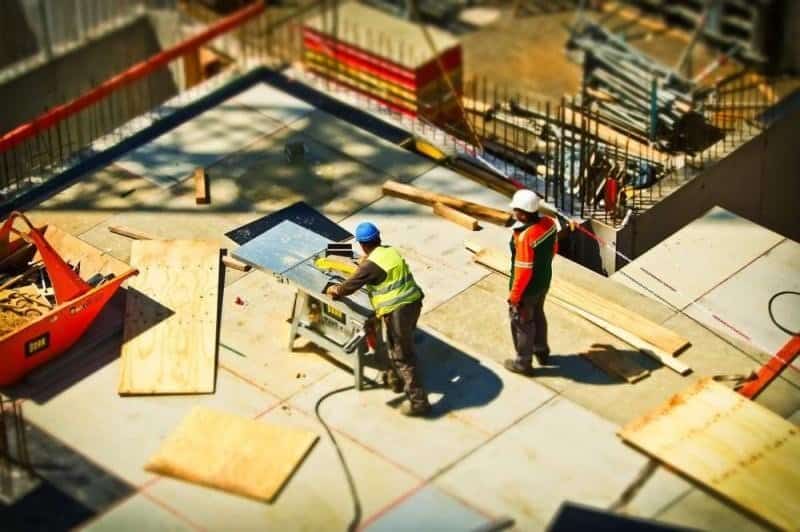You hear it all the time – the real estate market is booming right now. But this level of activity does bring its challenges. Things are tough all over when it comes to finding existing homes available for sale. And the resale home inventory is especially tight in Colorado Springs.
All of this makes new construction an attractive alternative. Right now, you have access to so many great, quality options for builders in the region. I’ll introduce you to a few of them – but first, let’s look at what’s happening in the Colorado Springs housing market more broadly.
Lower inventory in resale homes means prices are moving up – that’s simple supply and demand. Those factors are compounded in the nearby Denver market, driving prices higher and bringing some buyers to Colorado Springs willing to get a bit more bang for their buck in exchange for a longer commute.
New Communities in Colorado Springs
These days, much of the new home construction is focused in the northern sections of town. With the mountains to the west and Fort Carson to the south, the north is where the most buildable land is located – in neighborhoods like Forest Lakes, Sanctuary Pointe, and The Farm.
The aptly named Forest Lakes is a Classic Homes development just south of Monument. It’s a pristine location with two small lakes, interconnected walking trails, and amazing mountain views. Around the corner from Forest Lakes is Sanctuary Pointe – I’m telling you this area is growing fast! Homes from three area builders are available here – Classic, Saddletree, and Vantage Homes offer a mix of single family and paired patio homes. An ambitious planned community, The Farm offers homes from half a dozen area builders and a community gathering place with a pool, picnic area and canoe/kayak launch.
These communities offer a sense of being close to nature but with easy access to the vibrancy and amenities of Colorado Springs and Denver.
On the southern end of town, you’ll find Lorson Ranch. With homes starting in the $200,000s,
Lorson Ranch brings the dream of new construction ownership within reach for many more potential buyers.
Richmond Homes has also started construction in the new Mountain Valley Preserve. This is located in the rapidly growing eastern edge of Colorado Springs. Prices in this community will start in the Upper $200,000’s.
Recommended Builders
Over the years, the team here at Springs Homes have helped hundreds of home buyers find the ideal fit in a newly built home. We are fortunate to have several local builders we can highly recommend for their high construction standards and top-notch customer service.
Clearly a standout in the Colorado Springs market, Keller Homes has won “Best of the Springs” home builder award 7 years running. With a real focus on customer experience, Keller seeks to integrate high building standards, a focus on exterior and interior design choices, and energy efficiency.
Vanguard Homes is another builder with a great reputation we love to work with. Their designs manage a great balance between a classic look without a cookie-cutter feel. And they go out of their way to make each customer feel catered to from start to finish. One of our top agents, Nicole Happel writes: “One of my favorite recent builder experiences was at closing with Vanguard Homes. Typically, builders do not attend closings. Instead, they pre-sign their docs and buyer is alone at the closing table with me. Not with Vanguard! The owner, Mark Long, attends all closings. He engages with the buyer and establishes a personal relationship with them and with me as their Realtor. After the paperwork was signed, he presented my client with a beautiful closing gift and thanked her and me for our confidence in them. Truly impressive!”
Campbell Homes has a strong business and military relocation program. So whether you are moving to Colorado Springs for a new business opportunity, or taking that transfer to Fort Carson, of Peterson or Schriever Air Force Base, Campbell will guide you through the home buying process and build with their trademark comfort and style.
Another area builder with a solid track record of quality and value is Saint Aubyn Homes. Saint Aubyn builds in several communities including Lorson Ranch and Wolf Ranch. A recent Facebook reviewer had this to say about his experience with Saint Aubyn: “Great community, high-quality homes with exceptional standard options. Mark Ewell and Steve Kandarch will handle your buying experience perfectly. They are experts and made the new home construction process an experience of a lifetime. I can’t recommend these guys enough. Great team! great experience!”
Vantage Homes works with a simple, people-centric philosophy that seems to be working very well for them. A portion of their mission reads, “We are in the ‘people business’ and the product we deliver is homes. Our mission is to be the builder of choice and have fun.” With homes going up in at least seven communities, it seems that Vantage is the builder of choice for many who choose to live and work in greater Colorado Springs. And the fun starts with over 20 floorplans to hit most everything on your new home wish list.
For a true custom home experience, Goetzmann Homes is a clear choice. Brooke Mitchell, a Springs Homes Broker Associate shares, “Phil Goetzmann built my first mentor’s home while I was working for them. I appreciated the attention to detail and multiple meetings throughout the process. Very engaging!”
Pros and Cons of New Construction
New construction has many advantages: New homes are much more energy efficient, with the latest in utilities, mechanical systems, insulation and building materials bringing a level of efficiency it’s hard for resale homes to compete with. You also get more of what you want – your wish list can get checked off more easily when you have a hand in designing your new home. Renovation of an existing home is just not everyone’s cup of tea – why not start off with exactly what you want? Another advantage…fewer surprises after settlement. Your house is under warranty! Everything is brand new – and if something is not right – get it on a punch list and a builder who values reputation will stand by their product and fix problems that may arise.
Disadvantages: new construction does come at a premium. You’ll pay a bit more for the newness factor. Timing can get complicated in new construction. You’re selling your home – but will the new one be finished when you want to move? Short term rental or (*gulp*!) living with in-laws might become a necessity. Also, if you love the feel of an established community, living in a place that is constantly under construction may not be the right fit for you.
For many, many people, the pros far outweigh the cons. And as you can see, there is so much available to choose from in the new construction market here in Colorado Springs. Please feel free to contact us with any questions. We’re here to guide you to the right fit for you.
Additional Resources:
- Home Remodeling and New Construction-Paul Sian
- Must Knows About Buying New Construction-Wendy Weir
- Buying a New Home, How To Choose Upgrades-Debbie Drummond
- Why Have a Buyer’s Agent When Purchasing New Construction-Bill Gassett

